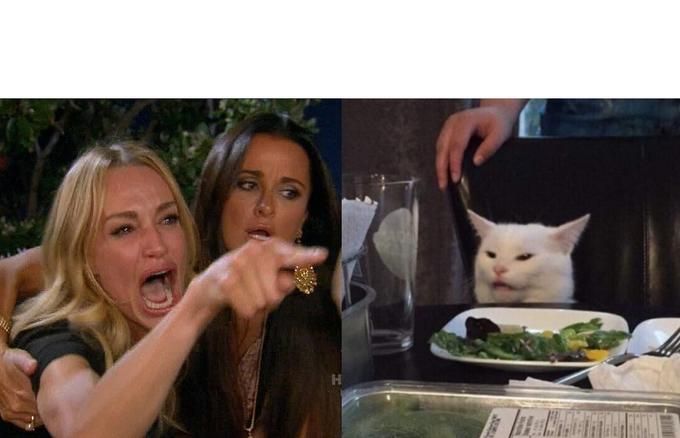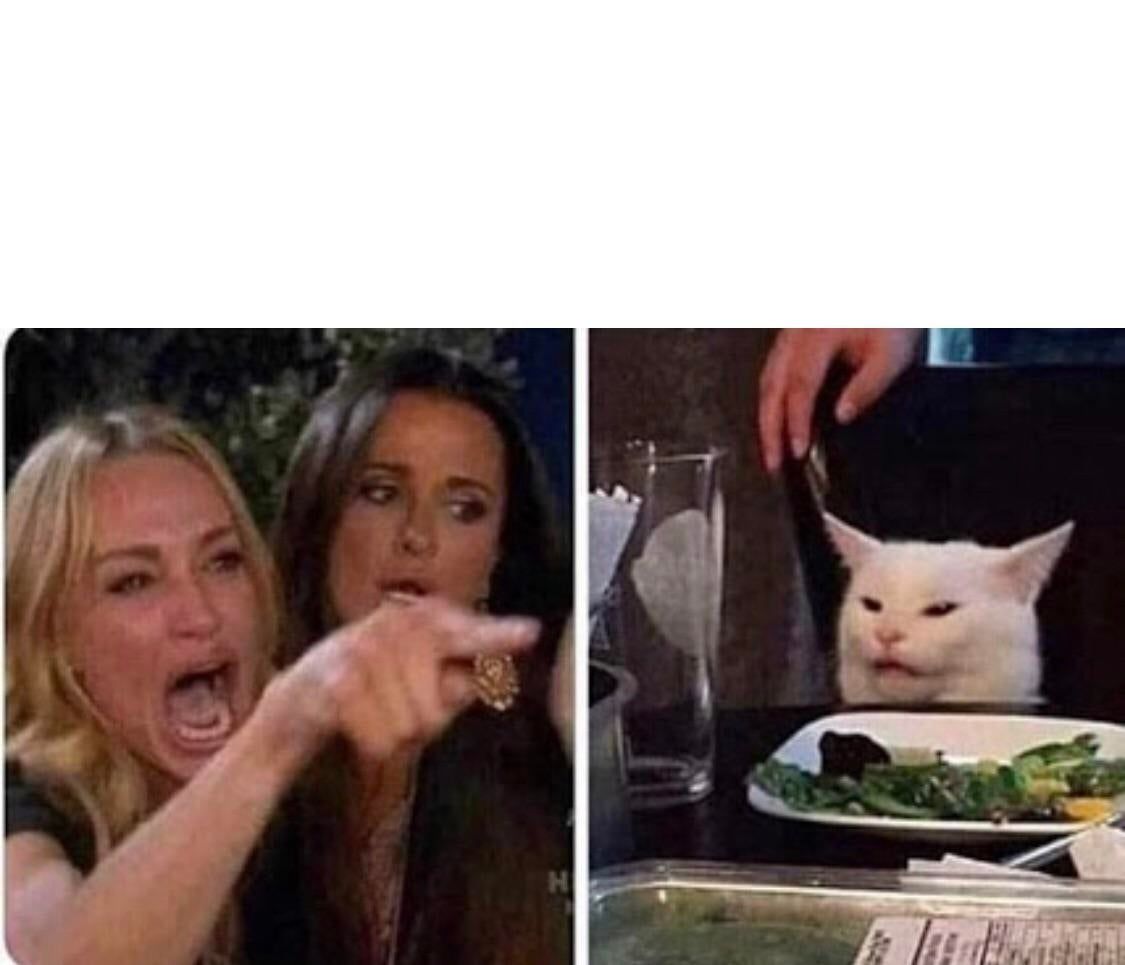What is Woman Yelling At Cat
Create Your Own Woman Yelling At Cat Meme Woman Yelling At Cat
Woman Yelling At CatWoman Yelling At Cat
The 'Woman Yelling At Cat' meme is a widely recognized two-panel image macro that juxtaposes a visibly distressed and yelling woman with a calm, white cat sitting at a dinner table, appearing confused or disgusted by a plate of salad. This meme has become a staple in internet culture for its immediate and humorous depiction of various forms of conflict, misunderstanding, or contrasting reactions.
🤨 Meaning
At its core, the meme typically illustrates a situation involving two contrasting perspectives or reactions. The woman represents an intense, often frustrated, accusatory, or passionate viewpoint, while the cat embodies a calm, dismissive, indifferent, or utterly confused response. It's widely used to humorously portray disagreements, miscommunications, the stark difference between someone's fervent argument and another's nonchalant reception, or even internal conflicts.
📖 Origin
The 'Woman Yelling At Cat' meme originated from two distinct sources that were later combined. The image of the yelling woman comes from a screenshot of Taylor Armstrong, a cast member of 'The Real Housewives of Beverly Hills,' during an emotional argument with fellow cast member Camille Grammer in the 2011 episode titled 'Malibu Beach Party From Hell.' The cat, known as Smudge the Cat, rose to internet fame from a Tumblr post by @deadbefordeath in June 2018, featuring Smudge sitting at a dinner table with a salad, captioned 'he no like vegetals.' The two unrelated images were first combined into the now-iconic meme format in May 2019, quickly going viral across social media platforms for its relatable depiction of contrasting reactions and becoming one of the most popular memes of the year.
🎙️ Usage
The 'Woman Yelling At Cat' meme is perfect for scenarios where you want to highlight a stark contrast between two entities, ideas, or reactions, particularly when one is expressing strong emotion or an opinion, and the other is responding with indifference, confusion, or a completely different perspective. It's ideal for illustrating everyday frustrations, humorous disagreements, or the disconnect between expectations and reality. Examples include:
- Personal Frustrations: 'Me trying to explain my feelings vs. my therapist's blank stare.'
- Pop Culture Commentary: 'Fans reacting to a plot twist vs. the show writers' intentions.'
- Everyday Annoyances: 'Me trying to stick to my diet vs. the irresistible smell of pizza.'
- Debates/Arguments: 'My logical argument vs. my friend's completely unrelated counterpoint.'
- Internal Conflict: 'My motivation to work vs. my desire to procrastinate.'
🖼️ Related Images










